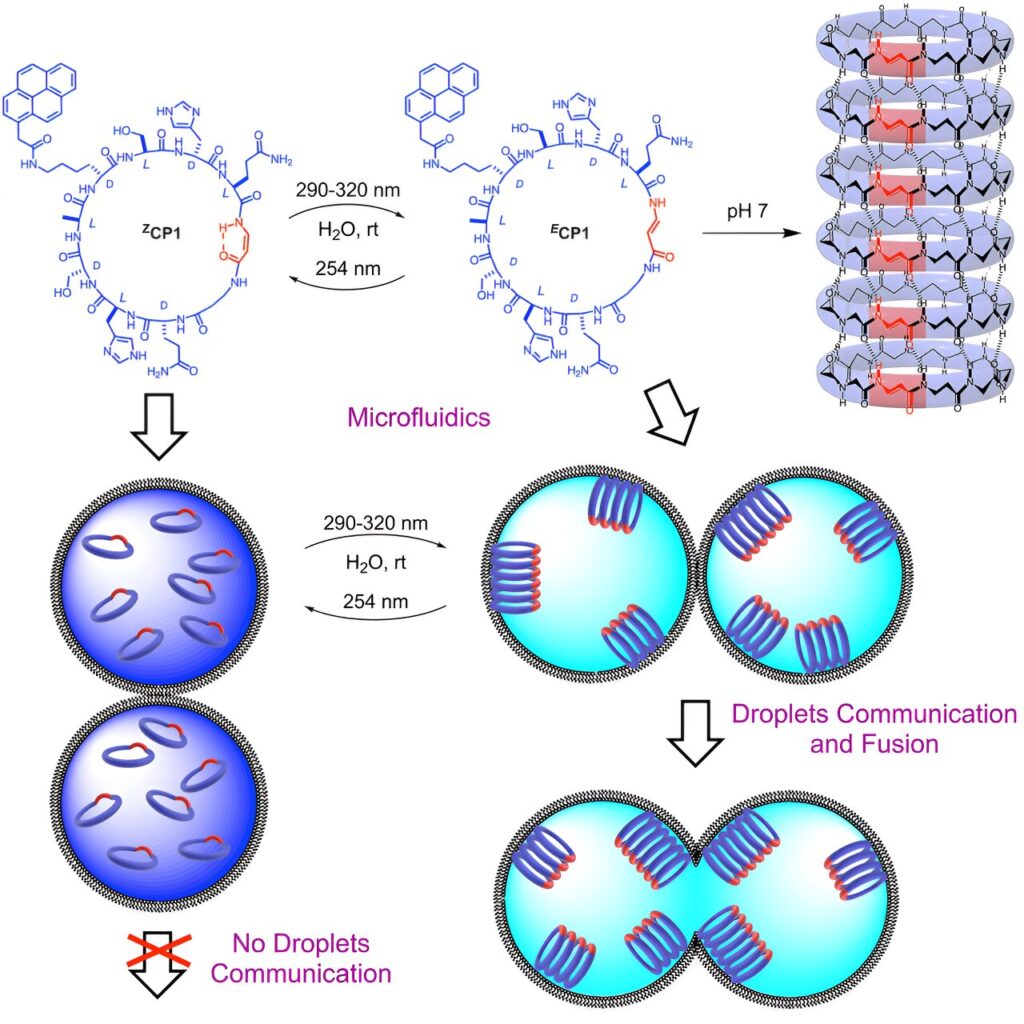Peptide nanotubes are tubular-shaped structures formed by the controlled stacking of cyclic peptide components. These hollow biomaterials show inner and outer faces, allowing control over their properties.
Led by Juan R. Granja, researchers from the Center for Research in Biological Chemistry and Molecular Materials (CiQUS) presented a novel kind of cyclic peptide that, when light-irradiated, induces the formation or desegregation of nanotubes on demand.
The peptide switches from a folded to a flat conformation at the appropriate wavelength. When the planar conformation is adopted, the peptide rings assemble to form tubular-shaped structures, whereas in the folded arrangement, the peptides remain unassembled.
A mesh of microtubules provides structure and shape to cells and is key to performing their functions and dividing. One of the main challenges in cell biology is to emulate this fiber in order to construct an artificial cytoskeleton. To this end, Prof. Granja’s group has been studying the properties of peptide nanotubes for years to create these synthetic meshes and thus control the molecular mechanisms underlying these biological processes.
However, a simple model to simulate this vital component of cells requires the formation/disassembly process to occur with precise spatiotemporal control under physiological conditions, something that was not possible with peptide nanotubes at the time.
Using light as an external stimulus, in this work, CiQUS researchers synthesized the nanotubes inside water droplets under neutral conditions, thus simulating the physiological media present in the cell.
Fibers formed rapidly on the contour of the water-in-oil droplets and induced their fusion. According to the authors, when the nanotubes are located at the interface, they provide the droplets with the ability to fuse with each other, a mechanism of great interest to simulate cell phagocytosis or explore new drug delivery systems.
The research is published in the journal Chem.
Provided by
Center for Research in Biological Chemistry and Molecular Materials (CiQUS)


